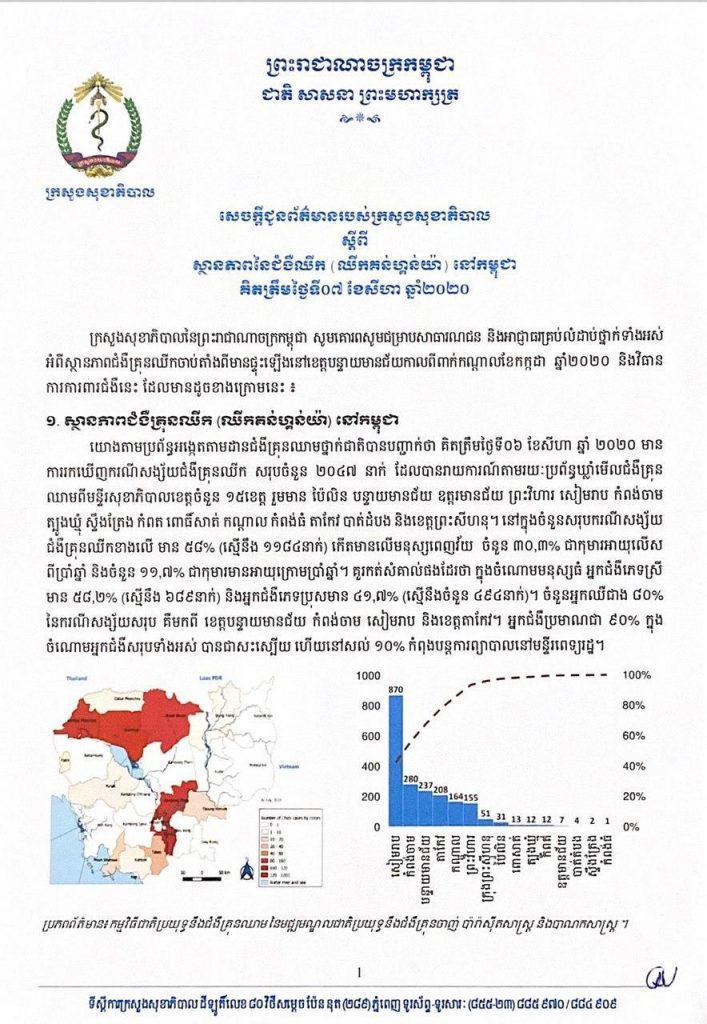Phnom Penh: The Ministry of Health on August 08, 2020, issued a press release on the status of chikungunya virus outbreak in Cambodia.
The ministry said that as of August 6, 2020, the ministry had identified a total of 2,047 suspected cases of chikungunya reported in 15 provincial health departments: Pailin, Banteay Meanchey, Oddar Meanchey, Preah Vihear, Siem Reap, Kampong Cham, Tbong Khmum, Stung Treng, Kampot, Pursat, Kandal, Kampong Thom, Takeo, Kampot and Preah Sihanouk.
Of the total number of suspected cases, 58% (equivalent to 1,184) occurred in adults, 30.3% in children over five years of age and 11.7% in children under 5, the ministry said. In adults, female patients accounted for 58.2% (equivalent to 689 patients) and male patients were 41.7% (equivalent to 494 patients). More than 80% of all suspected cases are from Banteay Meanchey, Kampong Cham, Siem Reap and Takeo provinces. About 90% of all patients have recovered and the remaining 10% are continuing treatment at public hospitals.
The National Dengue Fever Program also confirmed that about 72% of the total suspected cases were confirmed as chikungunya. The results of a national study of the National Dengue Fever Program also showed that in and around the house, the presence of mosquito larvae was detected in 66.7% of cases. Mosquitoes breed in car and motorcycle tires, bottle caps, coconut shells, rice bowls, plastic soup cans, plastic coffee cans and 33.3% in round jars, cement jars, pools and containers.
In order to protect against both chikungunya and dengue fever, spread by mosquito bites, Professor Mam Bunheng, Minister of Health, would like to remind and encourage all citizens as well as all local authorities to increase their participation to eliminate tiger mosquito habitats and prevent mosquito breeding by adhering to:
* Clean living habits,
* Wear long-sleeved clothes, sleep under a mosquito net
* Be active in getting rid of larvae in places or objects with old water, such as car tires, motorcycles, bottles, cans, coconut shells, rice, soup, plastic cans, etc
*Seek medical advice at a public hospital near you if showing any symptoms

